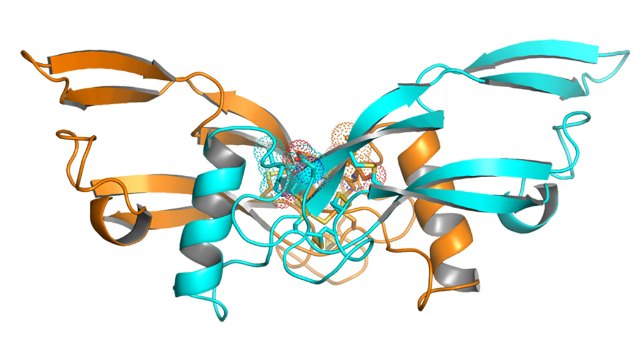 Crystal structure of a new engineered protein for treating obesity in laboratory animals. Y. XIONG ET AL., SCIENCE TRANSLATIONAL MEDICINE (2017)Researchers at the biopharmaceutical company Amgen have identified a protein that seems to help obese mice and primates to lose weight, as they report in a study published today (October 18) in Science Translational Medicine.
Crystal structure of a new engineered protein for treating obesity in laboratory animals. Y. XIONG ET AL., SCIENCE TRANSLATIONAL MEDICINE (2017)Researchers at the biopharmaceutical company Amgen have identified a protein that seems to help obese mice and primates to lose weight, as they report in a study published today (October 18) in Science Translational Medicine.
“This group really seemed to go a long way toward identifying what may be an interesting new approach to treatment, and that’s fantastic,” Paul Kenny, chair of the neuroscience department at Mount Sinai Health System in New York, tells Scientific American, adding that “key will be [determining] if it’s safe in humans.”
The researchers identified this protein, macrophage inhibitory cytokine 1/growth differentiation factor 15 (GDF15), through a microarray screen for secreted proteins that were differentially expressed between obese and lean mice. GDF15 is upregulated in the fat tissue and livers of obese animals, they found. Additionally, obese mice, rats, and humans have higher blood levels of GDF15 than do their lean counterparts.
After the researchers used a virus to administer the protein to obese mice, ...



















